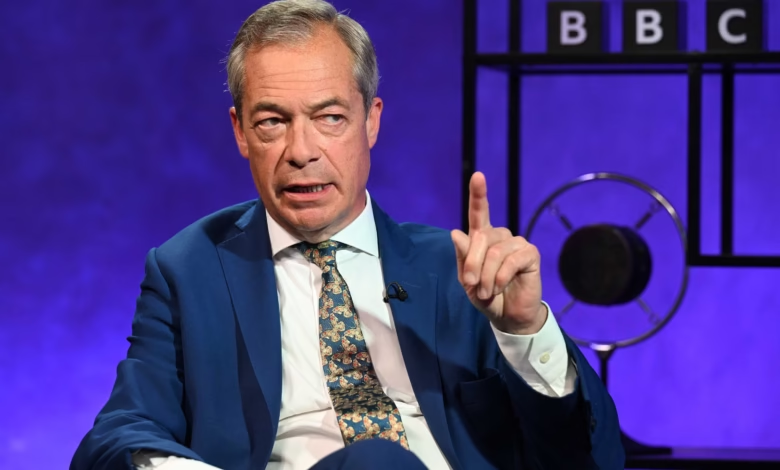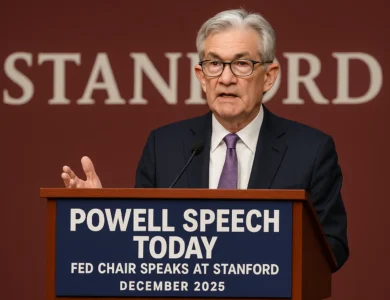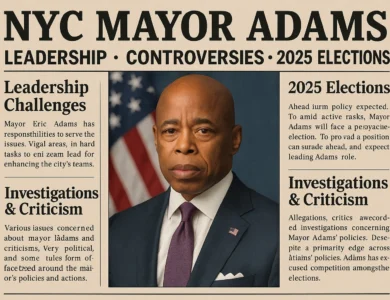
In the complex landscape of contemporary British politics, few figures have generated as much debate, admiration, and criticism as Nigel Farage. This polarizing political leader has fundamentally reshaped the United Kingdom’s relationship with Europe and left an indelible mark on the nation’s political discourse. From his early days as a commodity trader in the City of London to becoming one of the most recognizable faces of the Brexit movement, Farage’s journey represents a fascinating case study in modern political influence and populist leadership.
Nigel Paul Farage, born on April 3, 1964, in Downe, Kent, has spent over two decades at the forefront of Eurosceptic politics. His relentless campaign against European Union membership, combined with his charismatic speaking style and ability to connect with disillusioned voters, has made him a formidable force in UK politics. Whether viewed as a visionary leader who delivered on his promise to restore British sovereignty or as a divisive figure who exploited public anxieties for political gain, Farage’s impact on modern Britain cannot be understated.
This comprehensive examination of Nigel Farage’s political career explores his rise from a relatively unknown UKIP politician to becoming the architect of Brexit, his controversial statements and policies, and his lasting influence on British and European politics. Through analyzing his methods, achievements, and criticisms, we can better understand how one man’s political crusade fundamentally altered the trajectory of a nation.
Early Life and Path to Politics
From City Trader to Political Activist
Nigel Farage’s early career began far from the political arena. After leaving Dulwich College at 18, he eschewed university education to pursue a career as a commodity trader in the London Metal Exchange. This experience in the financial sector would later inform his political ideology and provide him with the financial acumen that he frequently referenced in his critiques of EU economic policies.
The turning point in Farage’s life came in 1992 during the Maastricht Treaty negotiations. Witnessing what he perceived as the erosion of British sovereignty through increased European integration, Farage became deeply involved in Eurosceptic movements. This pivotal moment transformed him from a successful trader into a passionate advocate for British independence from European institutions.
Founding Principles and Early Motivations
Farage’s entry into politics was driven by a fundamental belief in national sovereignty and democratic accountability. He argued that the European Union represented an undemocratic superstate that undermined the ability of national parliaments to govern their own countries effectively. These core principles would remain consistent throughout his political career, forming the ideological foundation of his later campaigns.
The UKIP Years: Building a Political Movement
Rise Through Party Ranks
Nigel Farage joined UKIP (United Kingdom Independence Party) in 1993, shortly after its formation. His natural charisma, combined with his unwavering commitment to the cause of European withdrawal, quickly propelled him through the party ranks. By 1999, he had secured election to the European Parliament, a position that would provide him with an influential platform for his anti-EU message.
During his time as an MEP (Member of the European Parliament), Farage became notorious for his confrontational speeches and direct challenges to European leaders. His theatrical style and quotable soundbites made him a media favorite, significantly raising his profile both domestically and internationally.
Leadership and Party Transformation
Farage’s leadership of UKIP, spanning multiple terms between 2006 and 2016, transformed the party from a fringe political movement into a significant electoral force. Under his guidance, UKIP’s political strategy evolved from single-issue campaigning to addressing broader concerns about immigration, globalization, and political establishment failures.
The party’s breakthrough came in the 2014 European Parliament elections, where UKIP achieved first place with 26.6% of the vote, becoming the first party other than Labour or Conservative to win a national election since 1906. This victory validated Farage’s approach and demonstrated the growing appetite for Eurosceptic politics among British voters.
Brexit Champion: The Referendum Campaign
Strategic Mastermind of Leave Campaign
While Nigel Farage was not the official leader of the Brexit campaign, his role as the movement’s most visible advocate cannot be overstated. His decades of groundwork in promoting EU withdrawal had prepared the political landscape for the 2016 referendum. Farage’s ability to articulate complex European issues in accessible language helped translate academic Eurosceptic arguments into popular political sentiment.
The Brexit referendum campaign showcased Farage’s political skills at their peak. His “Breaking Point” poster, though controversial, exemplified his willingness to address immigration concerns that mainstream politicians often avoided. This direct approach resonated with voters who felt their concerns had been dismissed by the political establishment.
Victory and Its Aftermath
The narrow victory for Leave (51.9% to 48.1%) represented the culmination of Farage’s political career. Having achieved his primary objective of securing British withdrawal from the European Union, he stepped down as UKIP leader shortly after the referendum, declaring his political ambition fulfilled.
However, Farage’s influence extended beyond the referendum result itself. His success in making Euroscepticism mainstream forced both major political parties to reconsider their European policies, fundamentally reshaping the landscape of British politics.
Media Presence and Public Persona
Master of Political Communication
Nigel Farage’s media strategy has been central to his political success. His regular appearances on television and radio, combined with his active social media presence, have kept him in the public eye long after stepping down from formal party leadership. His ability to generate headlines and provoke debate has made him one of the most recognizable political figures in Britain.
Farage’s communication style blends populist rhetoric with accessible explanations of complex political issues. This approach has enabled him to connect with voters who feel alienated by traditional political discourse, making him particularly effective at mobilizing support among demographics typically disengaged from politics.
Controversial Statements and Public Reactions
Throughout his career, Farage’s controversial statements have attracted both fierce criticism and passionate support. His comments on immigration, multiculturalism, and European integration have been characterized by supporters as refreshingly honest and by critics as divisive and inflammatory.
These controversies have contributed to his polarizing reputation but have also ensured continued media attention and political relevance. Farage’s ability to generate debate has kept important issues in public discourse, regardless of the controversy surrounding his methods.
Political Impact and Legacy
Transformation of British Politics
The impact of Nigel Farage on British politics extends far beyond Brexit. His success in making previously fringe political positions mainstream has influenced policy debates across the political spectrum. The Conservative Party’s shift toward harder Eurosceptic positions and stricter immigration policies can be partly attributed to the electoral pressure created by UKIP under Farage’s leadership.
Farage’s political legacy includes fundamentally altering the relationship between Britain and Europe, but also changing how political movements can achieve influence without winning significant parliamentary representation. His model of using European Parliament elections and media presence to build political momentum has been studied and emulated by populist movements across Europe.
International Influence
Beyond British shores, Nigel Farage’s influence has extended to international politics. His support for Donald Trump’s presidential campaign and his alignment with populist movements across Europe have made him a significant figure in global political networks. His advocacy for nationalist politics has contributed to broader discussions about sovereignty and globalization.
Criticisms and Controversies
Accusations of Divisive Politics
Critics of Nigel Farage argue that his political methods have contributed to increased social division and political polarization in Britain. They contend that his rhetoric on immigration and European integration has exploited public anxieties rather than providing constructive solutions to complex policy challenges.
Academic critics have also questioned whether Farage’s populist approach has oversimplified complex international relationships and economic realities, potentially leading to policy decisions with unintended negative consequences.
Responses to Criticism
Farage has consistently defended his political methods as necessary responses to the failure of mainstream politics to address public concerns. He argues that his direct approach to controversial topics has forced important debates that the political establishment had previously avoided.
His supporters contend that criticism of his methods often stems from resistance to democratic outcomes that challenge established political and economic interests.
Current Role and Future Prospects
Post-Brexit Political Activity
Following Brexit’s implementation, Nigel Farage has remained active in political commentary and advocacy. His involvement with Reform UK (formerly the Brexit Party) demonstrates his continued commitment to political reform beyond European withdrawal.
Farage’s current focus includes broader critiques of political establishment failures, environmental policies, and governmental responses to various crises. This evolution suggests his political influence may extend beyond the single issue that initially defined his career.
Ongoing Relevance
The question of Farage’s future political role remains open. His ability to mobilize voter support and influence political discourse ensures continued relevance, even as the specific issues that brought him to prominence evolve.
Read More: The Latest news on Congressman Jerry Nadler
Conclusion
Nigel Farage represents a unique figure in modern British politics—a politician who achieved his primary political objective while remaining outside traditional party structures. His journey from commodity trader to Brexit architect illustrates the potential for dedicated political activism to create fundamental change in democratic societies.
Whether viewed as a champion of democracy who restored British sovereignty or as a divisive figure who exploited public anxieties, Farage’s impact on Britain and Europe is undeniable. His success in making Euroscepticism mainstream and his role in securing Brexit will ensure his place in political history.
The legacy of Nigel Farage extends beyond specific policy outcomes to include lasting changes in how political movements build support and influence public debate. As Britain continues to navigate its post-Brexit future, the political methods and messages pioneered by Farage will likely continue to influence British political discourse for years to come.
Understanding Farage’s career provides valuable insights into the dynamics of modern democratic politics, the power of persistent political advocacy, and the complex relationship between populist movements and established political institutions. His story remains relevant not only for British politics but for democratic movements worldwide.






